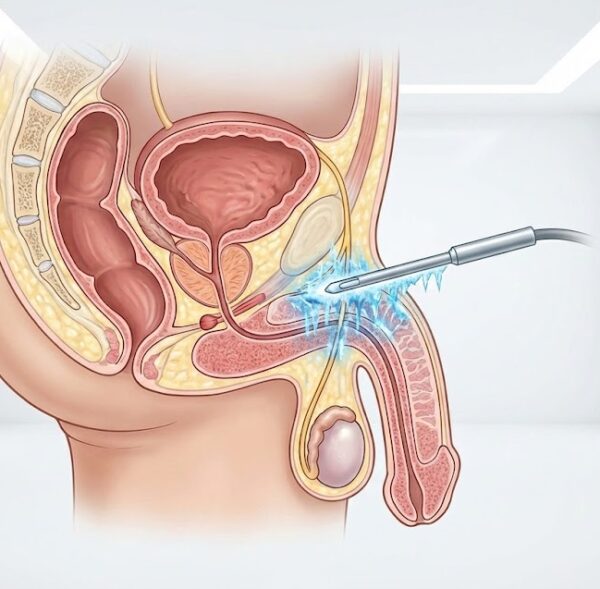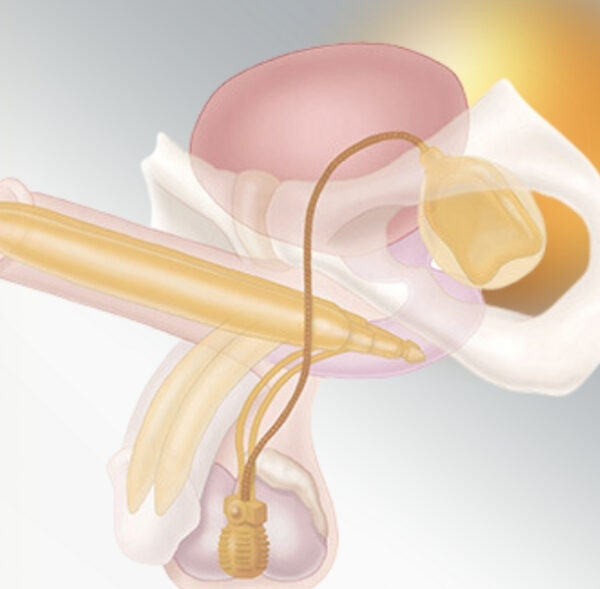Type Of Anesthesia
Processing Time
Discharge Time
Activity Start

Infertility Treatment
Male infertility treatment is among the topics of great interest today. Let’s examine the details about male infertility.
Male infertility occurs when couples fail to conceive despite regular, unprotected intercourse for 1 year, and it is medically referred to as infertility. This period can extend up to 2 years in some special cases.
What Are the Symptoms of Male Infertility?
The symptoms of male infertility can appear in various ways. Here are common infertility symptoms:
- Low Sperm Count or Quality: Infertility is often related to a low sperm count or abnormalities in sperm morphology (shape and structure). Sperm motility may also be low. This condition prevents the sperm from adequately fusing with the egg, reducing the chances of conception.
- Sexual Dysfunction: Sexual dysfunctions, such as erection problems or premature/delayed ejaculation, can be symptoms of infertility. These conditions can negatively affect the interaction between sperm and egg.
- Hormonal Problems: A decrease in testosterone levels or other hormonal imbalances can lead to infertility. Hormonal issues can directly affect normal sperm production and function.
- Testicular Problems: If there is pain, swelling, or any abnormalities in the testicles, it can affect the reproductive system, leading to infertility. Infections or trauma in the testicles can also affect sperm production.
- Genetic Factors: Some genetic conditions can naturally affect fertility. These conditions usually disrupt the normal development or motility of sperm.
What Are the Causes of Male Infertility?
One-third of the reasons why couples cannot conceive are due to male factors, one-third are due to female factors, and one-third are due to factors affecting both parties. The causes of male infertility can be various:
Anatomically, the hypothalamus and pituitary glands usually cause hormonal disorders that affect testicular function. Infiltrative diseases of the pituitary, blood flow disorders, pituitary function disorders, and some genetic diseases are among the pre-testicular causes and can lead to infertility.
Factors directly affecting testicular function include conditions that disrupt the structure of sperm in the testicles. Testicular infections, various testicular traumas, undescended testicles (failure of the testicles to descend to their normal position), surgical procedures, or exposure of the testicles to toxic substances can cause infertility.
Additionally, the absence of the sperm duct, motility disorders, sexually transmitted infections, or complications from surgical procedures can prevent sperm from being correctly expelled from the male genital system and are among the symptoms of infertility. It should be noted that these factors can contribute to male infertility.
How Is Male Infertility Diagnosed?
Firstly, the patient’s medical history is thoroughly examined. During this process, factors such as genetic diseases in the family, past surgeries, chronic diseases, and medications used are evaluated. Then, a physical examination is performed, and any abnormalities or signs of infection on the genital organs are investigated.
Semen analysis is a fundamental test for diagnosing infertility. A semen sample is sent to the laboratory, where sperm count, motility, and morphology are evaluated. It is generally recommended to perform semen analysis at least three different times.
Hormone tests are conducted to evaluate the hormonal balance affecting the male reproductive system. Especially testosterone levels, other hormones produced by the pituitary gland (like LH, FSH), and thyroid function tests are checked.
Imaging tests can be used to evaluate structural or anatomical problems in the testicles. Ultrasonography (USG) or more advanced imaging methods can be performed to show varicocele (enlargement of the testicular veins), tumors, or other anatomical abnormalities.
In special cases, genetic tests or more advanced examination methods may also be required. The diagnostic process is usually determined by a combination of all these steps, and an appropriate treatment plan is created based on the results.
How Is Male Infertility Treated?
Medication Treatment
Medications can be given to increase sperm count or improve sperm motility in men.
Intrauterine Insemination (IUI)
The IUI method involves placing male sperm into the woman’s uterus. This procedure can be applied during the natural ovulation cycle or a stimulated ovulation cycle with medication. IUI increases the chance of sperm meeting the egg, thereby enhancing the likelihood of pregnancy.
Assisted Reproductive Techniques (IVF)
IVF is one of the most commonly used assisted reproductive techniques. In this method, the woman’s eggs are fertilized in a laboratory, and embryos are created. Healthy embryos are then transferred to the uterus, increasing the chance of pregnancy. IVF is generally preferred in cases of tubal blockage, endometriosis, advanced age, or when other treatment methods have failed.

Contact us
- Sexual Desire Disorders
- Male Infertility Treatment
- What is Premature Ejaculation
- Genital Warts (HPV)
- Infertility
- Undescended Testis
- Penile Head Filling
- Penile Enlargement
- Penile Filler
- Penile Implants
- Penile Enlargement Procedures
- Penile Prosthesis Surgery
- Peyronie's Disease and Penile Curvature
- Pubic Liposuction for Penile Lengthening Surgery
- Erectile Dysfunction
- Circumcision
- Varicocele
- Venous Leakage







